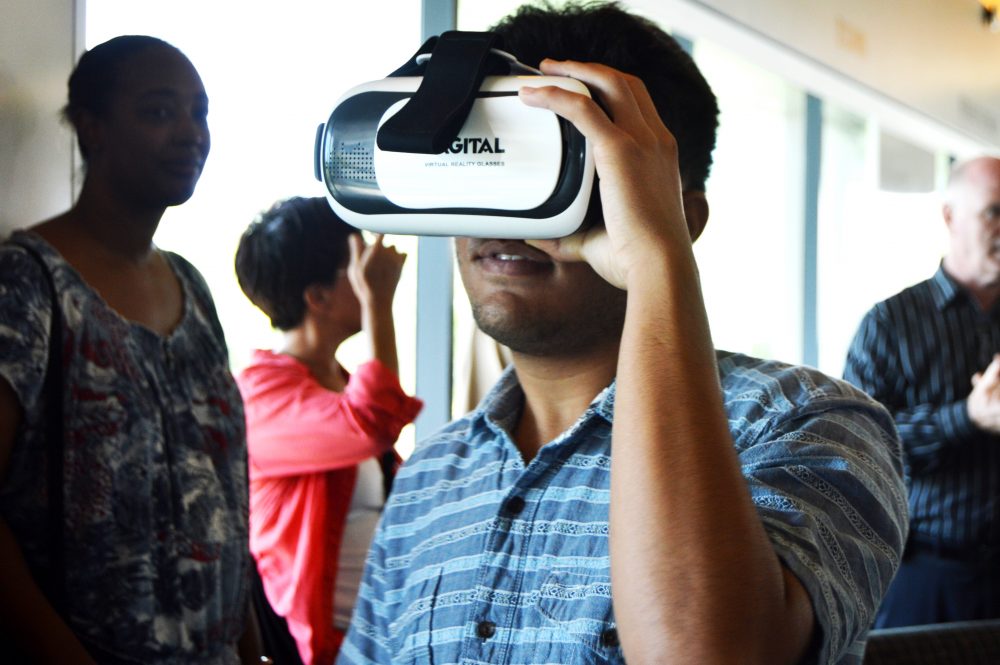Virtual Worlds Education Conference – June 5, 2017
Why just read about something – if you can fly, jump or climb it? Sure, you can find interesting details about space exploration in a book. But wouldn’t you rather descend safely into a black hole and see what’s inside for yourself? How about learning anatomy by actually roaming around inside a cell? Or travel deep under the earth’s crust to see plate tectonics in action? It’s all possible with virtual learning. Because virtual learning can literally open up a whole new world for instructors and students by immersing them in an interactive, 3D experience. And it’s becoming an increasingly popular way to teach STEM education.
So to help educators better understand the opportunities, Florida Institute of Technology is set to host a conference with some of the most trailblazing virtual reality experts around. It will take place June 5-8. As a result, attendees can meet representatives from ZSpace, SRI International and Engineering and Computer Simulations (ECS). As well as Florida Tech faculty and representatives from NASA.
Over 25 practitioners, education researchers and industry representatives will present their latest research. And they will share insight on the development of virtual reality and virtual world tools. Tools aimed at improving student learning. In addition, the VWE Conference will include presentations, panel discussions and a technology showcase. Experts in curriculum design and assessment will help STEM educators understand how to develop research programs.
Give Virtual Learning a Try
Kurt Winkelmann, Ph.D., associate professor of chemistry at Florida Tech, is the conference co-organizer. He partnered up with Jungwoo Ryoo, Ph.D., a professor of information sciences and technology at Penn State Altoona.
“During the showcase, attendees can experience some of the virtual reality programs and hardware that presenters discuss during the conference,” Winkelmann said. “And we hope that the VWE Conference will be interesting to college and K-12 educators as well as anybody who enjoys learning about technology and the latest innovations in education.”
Most of all, Winkelmann hopes the conference will provide a good opportunity to share knowledge, build relationships and address the challenges of teaching using virtual worlds.
“So we are focusing on higher education’s use of virtual worlds such as Second Life, in teaching STEM subjects,” Winkelmann said.
Recently, Winkelmann led an NSF-funded study to compare general chemistry lab experiments performed in Second Life with those in a real laboratory setting. Students found the Second Life experiments enjoyable. And they earned grades equal to or better than their peers who performed their experiments in the real world.
The conference, funded by the National Science Foundation, is open to the public and there is no cost to attend.
For more information visit the event website.





